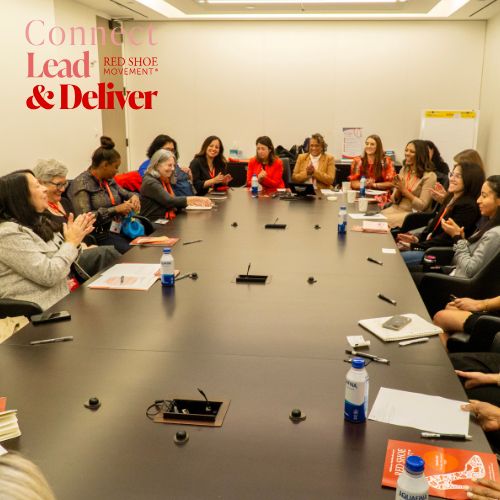With the shift to remote work that’s happened worldwide since the pandemic hit, professional women have been renegotiating gender roles at home.
We spoke to Debbie Nutt, Principal Disease Area Specialist within the hematology franchise in Novartis UK, and Sana Joudeh, from the Regulatory Affairs Department in the Middle East & Africa markets at Novartis, about what this change has been like for them and how it has affected their family dynamics.

Renegotiating Gender Roles and Family Dynamics
ALINE CERDÁN – Has the shift to working remotely brought up a need for renegotiating gender roles at home?
SANA JOUDEH – Luckily, my partner is a very collaborative and considerate person who’s been supportive and involved with the house and kids since I started working. I cannot say there was a need for renegotiating gender roles. However, we definitely had to discuss the new model together and agree how to manage daily tasks related to the family. We discuss each other’s calendar and important meetings during our morning coffee so the other person will be aware in case one of the kids needs support.
DEBBIE NUTT – I wouldn’t say it did in our home. Although it is lovely to have my husband around a little more in the mornings and to help with the children’s evening activities, as he is normally out from 7am until 7pm.
Adjusting to working at home has been interesting. My children, aged 8 and 9, were home from March 20th until August 14th, so we had to home-school at the same time. It meant we had to be pretty strict between my husband and I about aligning our diaries and who was on home-school duty each day. This was not always easy – who’s meeting is more important?

A.C.– Has it brought up family dynamics and patterns that maybe you didn’t notice before constantly sharing spaces?
S.J.– Yes, it did. Not only for us but also for our kids, who are used to knowing that if we are at home, then we are available. It took them sometime to understand that we are at home, but we are working and cannot attend to their requests on the spot. As for my husband and me, we’ve seen each other’s professional personas and became aware of the differences in our work-related activities. We’ve had many funny moments and discovered some parts that we didn’t notice before. Another important part is the ability to shift after work and rebalance to attend to the kids. Usually, this shift happens on the way home but now there is no time or space, so when you finish work everyone is around.
D.N.– I think every household falls naturally into a pattern. I would say it has taught us all that we don’t stop and chill and enjoy each other’s company very often as we are always rushing here, there and everywhere. This has been a definite positive and we plan to rush less and live more going forward.
A.C.– Do you feel your work life has been affected by the shift to working from home in ways that your partner’s work life hasn’t?
D.N.– I think during the home-schooling part of our all being at home together, I definitely felt the most frazzled trying to be mum, teacher and employee. I constantly felt like I was struggling to do anything well. I normally like to give 100% to work when I am at work, 100% to my family at home, etc. But this simply wasn’t possible, so both my husband and I had a lot of adjusting and mindset shifting to do to find some kind of balance.
S.J.– No, we are affected equally. The kids might have been used to coming to me, but now they have to see who is free to help, and sometimes that’s not me.

Company Support and Household Demands
A.C.– Has your employer been willing to reschedule work tasks to accommodate household demands or have you had to make adjustments with your partner?
S.J.– I think that without the flexibility and support that Novartis provided, things wouldn’t have been the same. Knowing that you are supported and that your safety and mental wellness are a priority made a huge difference. It gave us the power to shift things around easily and reprioritize without any fear or worry. So yes, the company was supportive and unique compared to other companies and industries.
D.N.– My workplace has been incredible from the start, allowing us to have no meetings during lunch time to let people feed their families and get some much-needed fresh air. Some days my husband could join us and other days we had to tag team, so he worked while I had meeting-free time.
A.C.– What are some of the conventionally gendered divisions and stereotypes you deal with where you live?
D.N.– I would say that there are not so many stereotypes as such. But for sure the organization of the children, including activities, packed lunches, new school clothes, shoes, emails from school for the most part still automatically sits with mum regardless of the working status. I think this is evolving in the UK. I know a lot of men who have taken shared parental leave with their wives when their babies were born or gone part time to look after children.
S.J.– The conventional belief that the woman is responsible for the house and kids although she is working like the man. Not all men accept to change and share such responsibilities. In addition, it really goes down to what the man believes and values and how strong the relationship between two people is. Another belief is that the man’s work is the priority. This is fine when it really is the case. Sometimes, however, the woman can have a senior role that’s more demanding and provides more, and it’s still not given the priority at home.
You may enjoy reading Making a Difference for Women in a World in Crisis

Overcoming New Challenges
A.C.– What would you say have been the most challenging aspects of this transition as a family?
S.J.– For me it was getting the kids to understand that being at home does not mean I am available. We had to monitor some behaviors at home, something that was not required before. (Like kids talking to each other loudly while you have a meeting.) And we had to create the time for the whole family to communicate and engage with each other after a long/technology draining day.
D.N.– I think the most challenging aspects of the transition have been, not being sure if you were keeping all the balls spinning. That feeling was definitely exacerbated at the beginning of this situation. On a positive side, we have had so much bonus time together and have learned that not everything needs to be done at full speed all the time.
A.C.– What advice would you give to other working women trying to renegotiate gender roles at home?
D.N.– My advice would be to listen to each other, what’s important for each member of your household generally and on each individual day, then talk it out. Things don’t need to run like clockwork, that’s not life. Compromise is key from all sides.
S.J.– This a difficult question because every house and relationship have its own dynamics. In general: Reflect and reset your priorities. First things first and the rest can be compromised. Involve the family members in transparent discussions and sharing the challenges you face. And ask for support.
You can reach Sana Joudeh via:
Don't miss Five Things About the Future of Work and How it Will Affects Us





















































































































































































